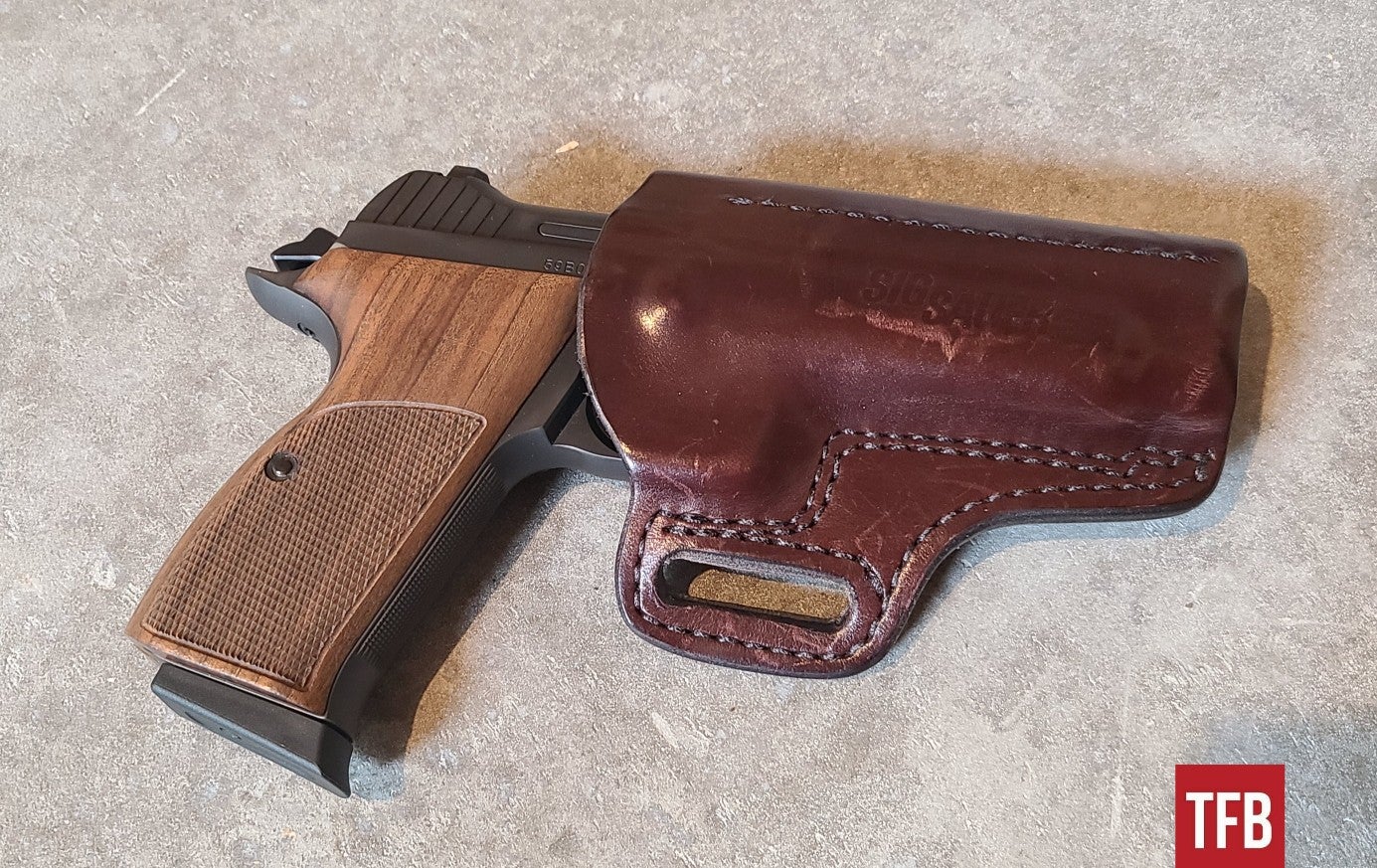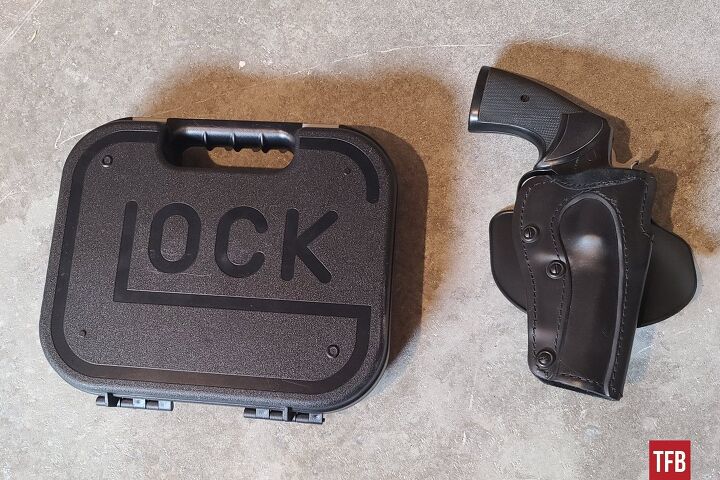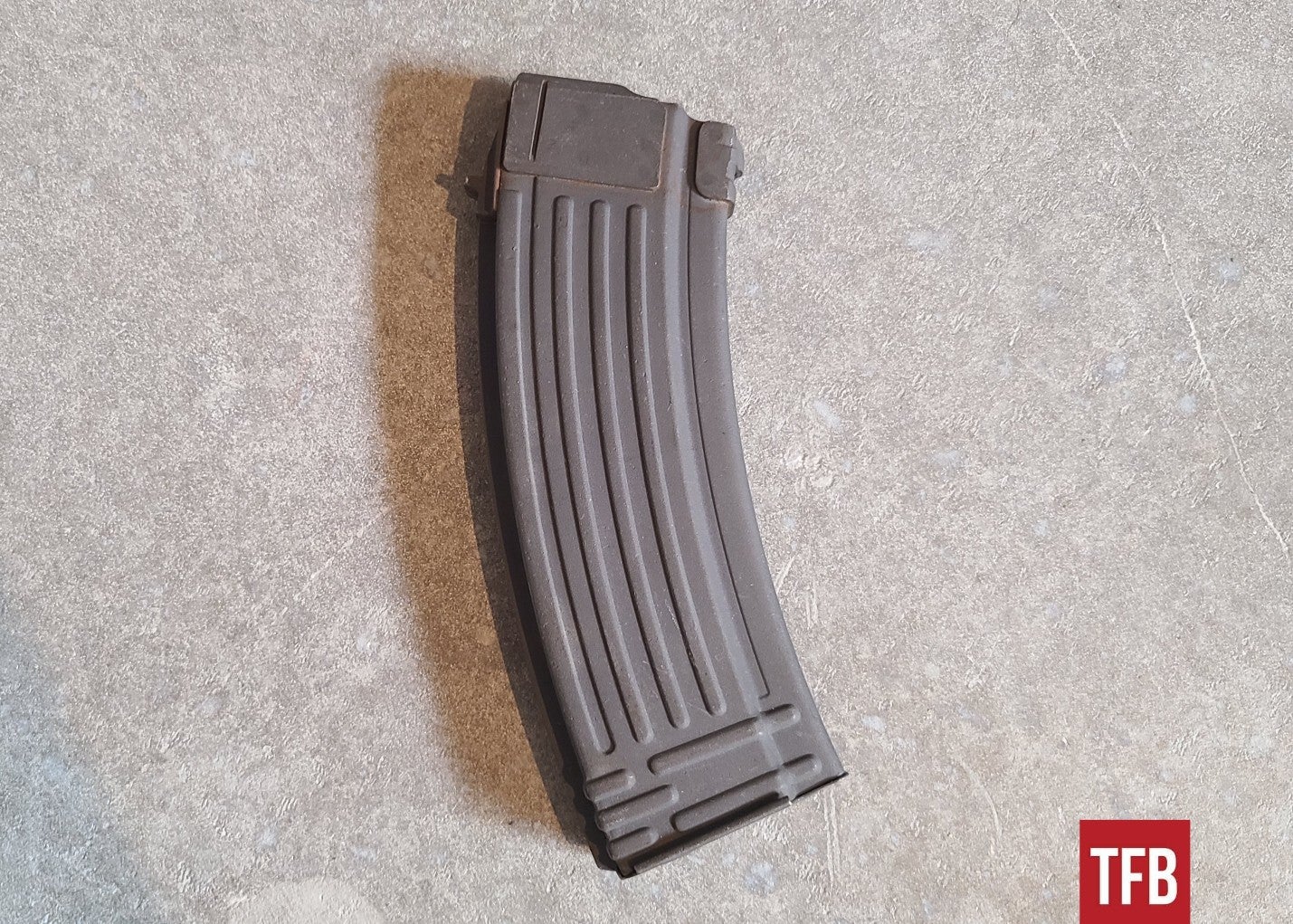2020 was a year of record gun sales, and that trend appears to be continuing in 2021. Many of those guns were purchased by first-time gun owners. The gun industry tends to assume that their customers already know the ins and outs of the world of guns. In the interest of education, here are some pointers on gun store etiquette.
#1 Safety
Always follow the rules of basic gun safety. Never point a gun at a person unless you intend to shoot them. Actions should be open and guns should be unloaded unless they are being used. Keep your finger off the trigger until you are ready to fire. These rules still apply when handling guns for sale, particularly the rule about pointing guns at people.

Is this gun loaded or unloaded? We can’t tell without clearing the gun. That’s why it should stay in the holster. (Daniel Y.)
DON’T UNHOLSTER YOUR GUN IN THE STORE. Unless there is a shootout going on, in which case you are more than welcome to join in. Other than that one (thankfully) rare circumstance you should not unholster your gun in the shop. This one goes for employees too. Drawing a carry pistol to show a customer is the mark of an unprofessional employee.
Carry guns are assumed to be loaded because they really should be loaded. When you take a gun out of concealment, the staff have to assume you are pulling out a loaded gun. Even if the staff knows that you are not pulling a gun for nefarious purposes, you are still handling a loaded gun away from the range. Unfortunately, customers regularly point empty display guns at the staff. While we don’t like it when unloaded guns are pointed at us, we especially don’t like it when presumably loaded guns are pointed at us.
Any gun you bring into the store should be unloaded, and ideally should be in a case. A cased firearm is unlikely to have an accidental discharge. And the staff can oversee the uncasing and clearing of the gun in a much more controlled manner than if the gun is in the customer’s hand. If you are unsure what the store’s rules are about bringing in a gun, please call and ask them what they prefer. It’s the courteous thing to do.

It is best to bring your gun into the store in a case (left) or holster (right) as opposed to uncased. (Daniel Y.)
Some stores allow customers to bring in uncased firearms. If you are bringing your gun in without a case, make sure it is visibly unloaded. Your magazine should be removed and the action should be locked open. If your gun does not have a bolt catch, it is a good idea to use a chamber flag. It can be pretty uncomfortable when someone walks through the door holding an AR with a magazine inserted and the bolt closed. The staff will probably issue some stern instructions to the person holding the gun so that it is cleared safely. All you have to do to avoid an uncomfortable conversation is follow the safety rules that are almost always posted on the door of the shop.
#2 Reasonableness
The gun business operates on boom-and-bust cycles. Politics and current events drive gun sales in the United States. This creates phases of extreme demand (with associated scarcity), phases where demand starts to even out, and phases of oversupply. During times of heightened demand, you will not have the same selection of products as in more plentiful times. The prices for guns and ammunition tend to be much higher during these periods of heightened demand. If you are looking for a normally common gun, accessory, or ammunition type, and you can’t find it, odds are there is elevated demand.
Even when times are good and supply is ample, gun stores cannot stock every item in the world. The more popular an item, the more likely it is to be found in any given shop. The opposite is true as well. The odds are not good that a small local store will have spare parts for a rare or out-of-production gun. But exceedingly common items like scope bases for a Remington 700 or the bolt carrier group for an AR-15 can usually be found locally.

A steel Romanian AK-74 magazine. Not the kind of thing a big box store would have. (Daniel Y.)
Reasonableness also extends to interactions with the staff. It is very unlikely they will be able to answer every question you might have. The employee you talk to may not share your abiding interest in Swiss military surplus rifles but probably can compare and contrast the SIG Sauer P365 and the Springfield Armory Hellcat for you.
#3 Different Stores Are Different
Gun stores range from hole in the wall shops to massive big box stores. Some shops have a large selection of hunting rifles and shotguns while others are primarily stocked with AR-15s and striker-fired pistols. You may hear country music in one store, and synthwave in the store down the street. The point here is this: find a store that matches your vibe. If you are a new shooter and the shop you’ve been going to is rude to new shooters, it’s a good idea to look elsewhere. In most places, there will be at least a few options. Similarly, someone in the market for body armor and night vision will probably not have good luck at a store with large numbers of taxidermied animals on the walls. Find a shop that is a good fit for you. It is usually worth a little drive to do so.
In summary, gun stores are retail establishments with human employees. Those gun counter workers care about their safety, so they will probably enforce some basic safety rules. They’re also mere mortals who can answer common questions and sell common products. If you calibrate your expectations to those realities, you are more likely to have a positive experience the next time you stop at your local gun store.
 Your Privacy Choices
Your Privacy Choices
